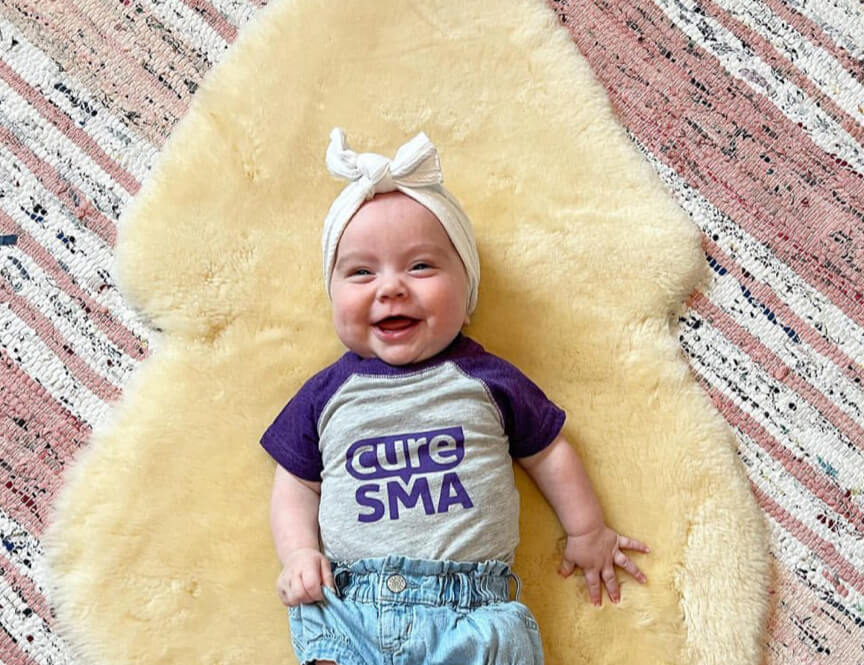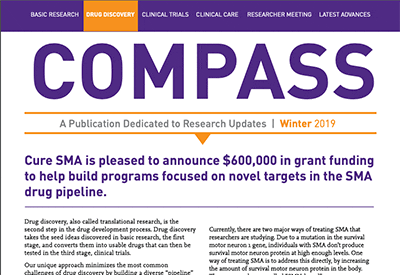Cure SMA and FAME (Families of SMA, Argentina) have awarded a $200,000 research grant to Alberto Kornblihtt, PhD, at the Universidad de Buenos Aires, Argentina, for his project, “Epigenetics in SMN2 E7 Alternative Splicing II.”
Epigenetics refers to changes that affect how much protein is produced from each gene, without altering the DNA sequence. Dr. Kornblihtt and his team plan to use epigenetic strategies to enhance the production of SMN protein from the SMN2 gene, with the goal of compensating for the missing SMN1 gene in SMA patients.
In this project, their goal is to identify cellular mechanisms and then drugs that affect epigenetic features of the SMN2 gene. This could increase production of full –length SMN protein from the SMN2 gene.
Drugs like Spinraza also work by ensuring protein produced from the SMN2 gene contains all the key building blocks needed for its correct functioning. However, Spinraza accomplishes this through a different mechanism than the epigenetic drugs to be explored in this project. Therefore, these epigenetic strategies could be used in combination with SMN-enhancing approaches, such as Spinraza, to achieve greater benefit for those with SMA.
This grant was co-funded by FAME (Families of SMA, Argentina).
Meet Dr. Kornblihtt
Who are you?
I was born in 1954 in Buenos Aires, Argentina. I graduated as a biologist (1977) from the School of Sciences of the University of Buenos Aires (UBA) and obtained a PhD in Biochemistry (UBA, 1980) at the Campomar Foundation. I did a post-doc (1981-1984) at the Sir William Dunn School of Pathology in Oxford (UK), where I cloned the human fibronectin gene and found its alternative splicing. I am Plenary Professor at the Department of Physiology, Molecular and Cell Biology of UBA and Director of the Institute of Physiology, Molecular Biology and Neurosciences of the National Research Council (IFIBYNE-UBA-CONICET) of Argentina. I am a Foreign Associate of the National Academy of Sciences of the USA, a member of EMBO and I served the Board of Reviewing Editors of the journal Science (2010-2015).
How did you first become involved with SMA research?
As an expert in alternative splicing, I was aware that the cure of SMA could be achieved through the control of alternative splicing of the SMN2 gene. However, only in 2015 I was approached by the Argentine families of SMA patients who encouraged me to start a new project in which my lab in Buenos Aires would join efforts with the lab of Dr. Adrian Krainer at Cold Spring Harbor, NY, in order to test if the use of the molecular tools we have developed in our lab could improve the effectiveness of already approved tools such as Spinraza.
What is your current role in SMA research?
My lab works on the regulation of alternative pre-mRNA splicing, explaining how a single gene generates multiple proteins. We found how the cell mechanism that copies genes into RNA (known as transcription) is key to regulate alternative splicing. We also found that chromatin sructure changes are crucial for alternative splicing decisions. We plan to use our vast knowledge on the regulation of alternative splicing by epigenetics to develop new tools to enhance the synthesis of the SMN protein, that is defective in SMA patients.
What do you hope to learn from this research project?
We hope to discover potential drugs that, by affecting epigenetic features of the SMN2 gene, help to produce more functional SMN protein.
How will this project work?
We will use epigenetic strategies developed in our lab to investigate how to promote functional SMN protein production from the SMN2 gene.
What is the significance of your study?
This research may result in therapies that work by epigenetic mechanisms. These therapies could potentially be used in combination with SMN-enhancing drugs, such as Spinraza, to improve effectiveness in patients.
Basic Research Funding
The Weisman Family Foundations recently awarded $70,300 to Cure SMA, in order to further new scientific research, and to help provide access to treatments, clinical trials and care. This year, this gift will be directed to support the work of Dr. Alberto Kornblihtt and his project.
Each year, a generous donation is made by the Weisman Family Foundations. Through contributions from their foundation and associated family foundations, the Weisman family has given over $1.3 million to Cure SMA.
On behalf of the entire SMA community, thank you to Loree, Ward, Lyza and Lena Weisman, The Weisman Family Foundation, The Toby & Nataly Ritter Family Foundation, The Louis A. Ritter Foundation, and The Irene Ritter Foundation for their generous contributions to Cure SMA.
This grant to Dr. Kornblihtt is part of $1,150,000 in new basic research funding that we’re currently announcing.
Basic research is the first step in our comprehensive research model. We fund basic research to investigate the biology and cause of SMA, in order to identify the most effective strategies for drug discovery. We also use this funding to develop tools that facilitate SMA research.
Past Announcements
$200,000 to Charlotte Sumner, PhD



